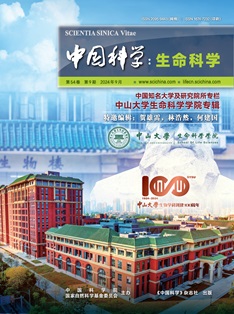Research advances on enteric methane emission from ruminants in natural grazing system
引用次数: 0
Abstract
In recent years, extreme weather events including extreme precipitation, extreme drought, heat wave, and extreme low temperature have occurred frequently around the world. This is mainly due to global warming caused by greenhouse gases produced by human activities. Therefore, it is the shared goal of all countries to achieve carbon neutrality, increased climate resilience, and mitigated climate changes. Methane (CH 4 ) is the second most important greenhouse gas after carbon dioxide (CO 2 ), but its warming potential is stronger. Methane from enteric fermentation in ruminants not only affects the environment, but also represents the loss of feed energy. As one of the important sources of CH 4 emission, extensive livestock systems have attracted much attention in recent years because of their impact on climate changes. This article mainly introduces the CH 4 emission of ruminants in the extensive livestock systems, and the mitigation strategies and management practices. It also introduces several accounting methods and monitoring technologies for CH 4 emission of ruminants, aiming to provide technical guidance for the medium- and long-term strategy of reducing the carbon footprint of livestock production systems and achieving the “double carbon” goal.自然放牧条件下反刍动物肠道甲烷排放的研究进展
近年来,包括极端降水、极端干旱、热浪和极端低温在内的极端天气事件在世界各地频繁发生。这主要是由于人类活动产生的温室气体导致的全球变暖。因此,实现碳中和、增强气候抵御能力、缓解气候变化是各国的共同目标。甲烷(CH4)是仅次于二氧化碳(CO2)的第二大温室气体,但其变暖潜力更强。反刍动物肠道发酵产生的甲烷不仅影响环境,而且代表着饲料能量的损失。作为CH4排放的重要来源之一,广泛的畜牧系统近年来因其对气候变化的影响而备受关注。本文主要介绍了反刍动物在粗放型畜牧系统中的CH4排放,以及缓解策略和管理实践。还介绍了反刍动物CH4排放的几种核算方法和监测技术,旨在为减少畜牧生产系统碳足迹、实现“双碳”目标的中长期战略提供技术指导。
本文章由计算机程序翻译,如有差异,请以英文原文为准。
求助全文
约1分钟内获得全文
求助全文

 求助内容:
求助内容: 应助结果提醒方式:
应助结果提醒方式:


